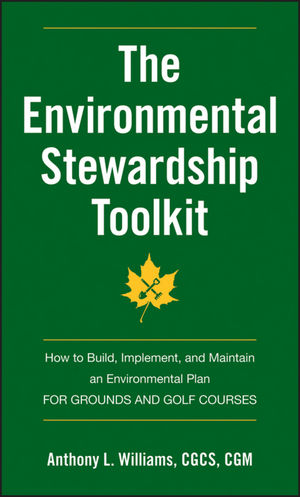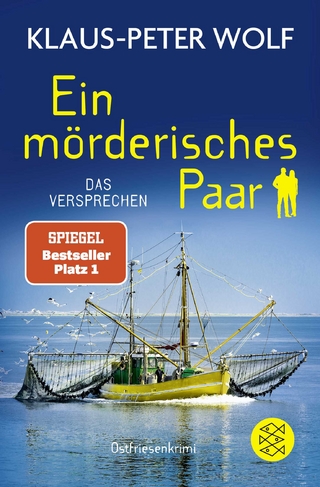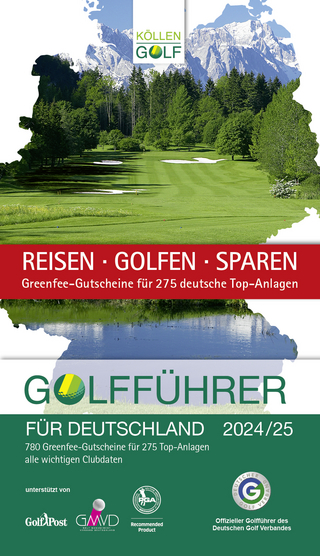
The Environmental Stewardship Toolkit
John Wiley & Sons Inc (Verlag)
978-0-470-63516-2 (ISBN)
A comprehensive, one-stop guide to environmental stewardship for golf courses and grounds
This highly practical guide covers the full complement of tools green industry professionals need to create a successful environmental program on golf courses and grounds. Written by a leading golf course superintendent and grounds manager, The Environmental Stewardship Toolkit offers a comprehensive analysis of all relevant issues, including environmental management, resource management, community engagement, and document management.
The emphasis throughout is on the development of programs that are both sustainable and practical, combining the protection and renewal of environmental systems with a workable business plan. Regulatory issues as well as concerns of owners, customers, and the community at large are also addressed. Clear, pragmatic, up-to-the-minute coverage includes:
Numerous illustrations, photos, and customizable templates and checklists that readers can use in their own projects
A system for sorting projects into green, greener, and greenest in order to tailor implementation for different budgets and project complexity
An in-depth look at site assessment, water quality and conservation, integrated pest management, and wildlife habitat management
Guidance for developing green public relations and communications skills to promote the project in the community
Field-tested procedures for building a state-of-the art documentation system for capturing, organizing, and disseminating information
A must-read for golf course superintendents, irrigation specialists, turfgrass specialists, and grounds managers, The Environmental Stewardship Toolkit is also useful for landscape architects and designers, grounds owners, developers, builders, contractors, and anyone wishing to be on the cutting edge of sustainability in the green industry.
ANTHONY L. WILLIAMS, CGCS, CGM, is Director of Grounds, Evergreen Marriott Conference Resort, Stone Mountain Inn, and Stone Mountain Golf Club in Stone Mountain, Georgia. He is a Certified Golf Course Superintendent, Certified Grounds Manager, Certified Arborist, and graduate of the GCSAA in the Environmental Management Program. Mr. Williams is the recipient of the 2010 GCSAA President's Award for Environmental Stewardship, a frequent contributor to many green industry publications, and is the environmental editor for Golfdom magazine. He was the 2011 Environmental Communicator of the Year for the Turf and Ornamental Communicators Association.
Foreword xi Acknowledgments xiii
SECTION 1 Environmental Management 1
Chapter 1: Building a Green Team 3
How to Establish an Environmental Committee 3
Where Do You Look to Begin Filling Positions in Your Committee? 4
How Many People Should Be on Your Environmental Committee? 9
Summary 10
Chapter 2: The Environmental Plan: Site Assessment 11
The Site Assessment 12
Site Assessment Features for Golf Courses 16
Summary 17
Chapter 3: The Environmental Plan: Agronomic Programs 19
Soil Structure and Edaphology 19
Essential Elements to “All” Plant Growth 21
Soil Samples and Soil Testing 23
Tissue Samples 25
Cultural Practices for Turf 26
What Is a Carbon Footprint and Why Is It Mentioned Here? 33
Summary 35
Chapter 4: The Environmental Plan: Water Quality and Conservation 37
Water Basics 37
Water Quality Programs and Strategies 38
Summary 53
Chapter 5: The Environmental Plan: Wildlife and Habitat Management 55
Developing a Wildlife Inventory 55
Guidelines for Enhancing and Maintaining Wildlife Habitat 64
Summary 66
Chapter 6: The Environmental Plan: Integrated Pest Management 67
Protecting Agronomic Assets through IPM 67
Summary 82
Section One: Environmental Management Conclusions 82
Action Steps: Green, Greener, Greenest 83
SECTION 2 Resource Management 85
Chapter 7: Accounting and Financial Processes 87
The Accounting Equation 88
Specifi c Financial Documents 89
Using Comparative Reports 94
Summary 98
Chapter 8: Budget Reduction and Contingency Strategies 99
Environmental Programs That Cut Expenses and Protect Assets 99
Partnerships Increase The Effectiveness of Recycling Programs 104
Summary 114
Chapter 9: Human Resources Management 115
Employee Recruitment and Hiring Practices 116
Achieving More with Less 121
Safety Programs and Resource Management 122
Summary 129
Section Two: Resource Management Conclusions 132
Action Steps: Green, Greener, Greenest 132
SECTION 3 Environomic Community Engagement and Green Public Relations 135
Chapter 10: Environomic Community Engagement 137
The Role of the Green Industry Professional in an Environomic
Community Engagement Program 138
Simple Steps for Starting an Environomic Community Engagement Program 139
Summary 144
Chapter 11: Public Relations and the Green Industry Professional 145
Communicating to and with Target Audiences 145
Public Relations and the Green Industry Professional 148
Creating a “Beyond the Property” Program 150
Crafting Your Story 152
Ten Steps to Creating and Sustaining a Successful Beyond the Property Public Relations Program 155
Summary 156
Chapter 12: Photography’s Role in Green Public Relations 157
Digital Camera Facts for the Green Industry Professional 160
Learning Another Language (or Two) 171
The Future of Community Engagement 173
Summary 174
Section Three: Environomic Community Engagement And Green Public Relations Conclusions 174
Action Steps: Green, Greener, Greenest 174
SECTION 4 Documentation Management 177
Chapter 13: Essential Green Industry Documentation 179
How Do I Begin to Create a Personal Documentation List? 180
Transforming Your Personal Documentation List into a Personal Documentation Program 182
Documentation: Tools of the Trade 184
The Daily Work Log 185
Weather Reports 188
Agronomic Reports and Documentation 191
Water Quality Tests 193
Disease and Nematode Sampling 195
Chemical Application Records 195
The Right to Know Center and Safety Training Documents 198
Licenses and Miscellaneous Documents 202
Summary 202
Chapter 14: Case Study Documentation and Uses 203
What Exactly Does a Case Study Look Like? 204
Environmentally Focused Documentation: the Building Blocks of Case Studies 216
Water Use and Irrigation Documents 219
Summary 221
Section Four: Documentation Management Conclusions 221
Action Steps: Green, Greener, Greenest 222
SECTION 5 Putting It All Together: Synergy and the Green Industry Professional 223
Chapter 15: Career Focus and Professional Image 225
Time Horizons, Career Focus and the Green Industry Professional 231
Stretch Goals and Link Goals 238
Summary 244
Chapter 16: Professional Associations and Networking 245
American Nursery and Landscape Association 246
American Society of Golf Course Architects 246
American Society of Landscape Architects 247
Golf Course Builders Association of America 247
Golf Course Superintendents Association of America 248
Irrigation Association 248
International Society of Arboriculture 249
Professional Grounds Management Society 249
Professional Landcare Network (PLANET) 250
Sports Turf Managers Association 251
The Green Industry Ambassador 251
Summary 255
Chapter 17: Roadmaps for Success—Personal Success Stories from the Green Industry 257
Delany, Tom 258
Dinelli, F. Dan 260
Farren, Bob 265
Finney, Shelia 267
Hiers, Tim 269
Higgins, Monica 272
Jackson, Joseph B. 275
Maples, Palmer Jr. 277
Mangum, Ken 279
Mongeon, Roger 281
Newell, Ellen 282
O’Donnell, Kevin 284
Phipps, David 285
Pinson, Bob 288
Scott, Bob 289
Toma, George P. 291
Van Etten, John 292
Van Haasteren, George 294
Williams, Bruce R. 296
Summary 298
Section Five: Synergy and the Green Industry Professional Conclusions 298
Action Steps: Green, Greener, Greenest 299
Index 301
| Verlagsort | New York |
|---|---|
| Sprache | englisch |
| Maße | 132 x 216 mm |
| Gewicht | 404 g |
| Themenwelt | Sport ► Ballsport ► Golf |
| Technik ► Architektur | |
| ISBN-10 | 0-470-63516-9 / 0470635169 |
| ISBN-13 | 978-0-470-63516-2 / 9780470635162 |
| Zustand | Neuware |
| Haben Sie eine Frage zum Produkt? |
aus dem Bereich


